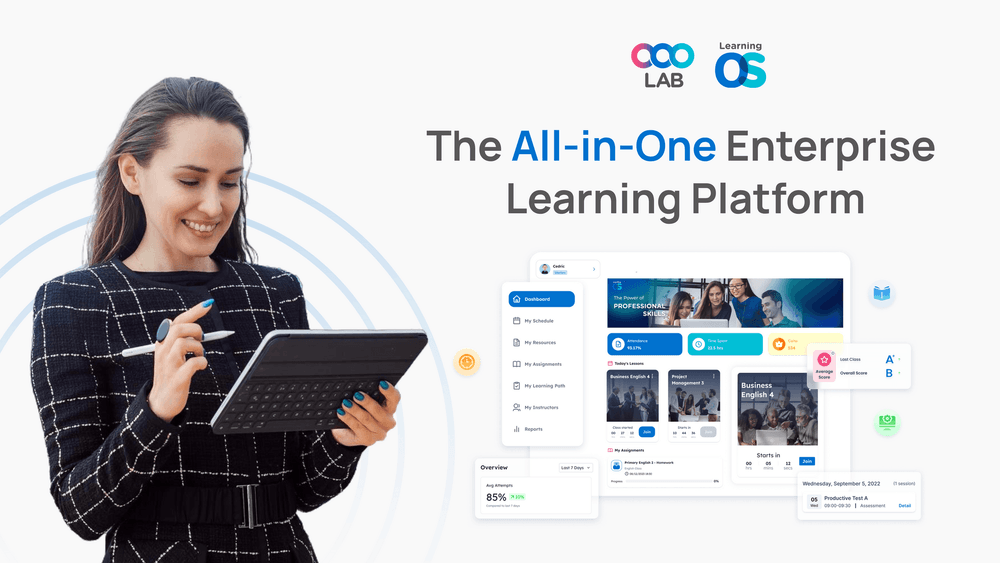

Sales enablement is about equipping teams with the tools, skills, and knowledge to close deals and drive revenue. At its core, sales training is the engine that powers this process, ensuring reps are prepared to meet modern buyer demands. However, traditional training methods often fail to engage busy sales professionals, leading to low participation and poor retention. Gamification—using game-like elements such as points, badges, and leaderboards—offers a solution, transforming sales training into an engaging, effective experience.
By integrating gamification into an enterprise LMS, organizations can make sales training fun, boost motivation, and improve performance. This blog explores how gamification revolutionizes sales enablement, with data-driven insights and practical strategies to leverage it in 2025 and beyond.

Gamification taps into human psychology, using competition, rewards, and interactivity to drive engagement. In sales enablement, it turns sales training from a chore into a dynamic, enjoyable process. An enterprise LMS enhances this by delivering gamified content at scale, tracking progress, and fostering a culture of continuous learning.
A 2024 Mordor Intelligence study found that 89 percent of employees feel more motivated when training includes gamification. For sales teams, this translates to higher completion rates, better skill retention, and improved outcomes. Gamification aligns with the competitive nature of sales, making it a natural fit for sales training.
>>> Read more: Sales Training Demystified: Why It Matters More Than Ever
>>> Read more: Effective Onboarding Strategies for New Sales Hires: Setting Them Up for Success
Sales reps are busy, often juggling client calls, prospecting, and quotas. Traditional sales training—long presentations or dense manuals—struggles to capture their attention. Low engagement leads to wasted resources and skill gaps, undermining enablement goals.
Gamification addresses these challenges by:
Boosting Motivation: Rewards like badges or points incentivize participation.
Enhancing Retention: Interactive elements improve knowledge absorption.
Fostering Competition: Leaderboards tap into reps’ competitive drive.
Fitting Busy Schedules: Bite-sized, gamified modules suit on-the-go learning.
An enterprise LMS makes gamification seamless, hosting interactive sales training content and tracking engagement in real time. As sales cycles accelerate, gamification ensures reps stay skilled and motivated.
Book Free Demo with us. Bring your Training and Learning to a new height with LearningOS.

>>> Read more: Building Confidence in Your Sales Team Through Training and Development
>>> Read more: Addressing declining retail foot traffic issue
Gamification is not just about fun—it’s a strategic tool that enhances sales training effectiveness. Below are the key ways it transforms enablement, powered by an enterprise LMS.
Gamified sales training uses role-playing scenarios to simulate real-world situations, such as negotiating with a tough client or closing a high-stakes deal. An enterprise LMS hosts these challenges, allowing reps to practice skills in a safe environment. For example, a rep might earn points for choosing the best response in a virtual pitch.
A 2023 McKinsey study found that interactive training boosts skill retention by 60 percent. These scenarios make sales training engaging and practical, preparing reps for actual sales encounters.
Points and badges reward reps for completing sales training modules, passing quizzes, or achieving milestones. An enterprise LMS tracks these rewards, displaying them on user profiles to foster a sense of achievement. For instance, a rep might earn a “Negotiation Pro” badge after mastering objection-handling modules.
Rewards tap into intrinsic and extrinsic motivation, encouraging reps to engage consistently. This approach ensures sales training becomes a priority, not an afterthought.
Sales teams thrive on competition. Gamified sales training uses leaderboards to rank reps based on points earned or modules completed. An enterprise LMS displays real-time rankings, motivating reps to outpace peers. For example, a leaderboard might highlight top performers in a sales training course on upselling techniques.
A 2024 LinkedIn Learning report noted that gamified leaderboards increase training completion rates by 50 percent. Healthy competition drives engagement while fostering team camaraderie.
Microlearning—short, focused modules—pairs perfectly with gamification. An enterprise LMS delivers sales training in 5- to 10-minute bursts, incorporating quizzes, mini-games, or timed challenges. For instance, a rep might play a quick game to match customer objections with responses, earning points for accuracy.
Microlearning fits busy schedules, and gamification makes it addictive. This combination ensures sales training is both accessible and impactful.
Gamification can foster collaboration through team-based challenges. An enterprise LMS enables groups to compete in sales training tasks, such as creating the best pitch or solving a case study. Teams earn collective points, encouraging peer support and knowledge sharing.
Team challenges build cohesion, especially for hybrid or remote salesforces. They also make sales training a shared experience, boosting morale and engagement.
Tying gamification to tangible incentives amplifies its impact. An enterprise LMS can integrate rewards like gift cards, bonuses, or extra time off for top performers in sales training. For example, a rep who leads the leaderboard might win a voucher after completing a course.
Real-world rewards bridge virtual achievements with meaningful outcomes, driving sustained participation in sales training.
>>> Read more: A guide to teaching sales rep positive response
>>> Read more: Why is employee upskilling non-negotiable for business success
Looking to 2025, gamification will evolve with AI and immersive technologies. AI-driven leaderboards will adapt to individual performance, ensuring fair competition. Virtual reality modules, hosted on an enterprise LMS, will create lifelike sales scenarios, enhancing sales training. Gamification will also integrate with CRM systems, delivering just-in-time challenges based on live deal data.
As these advancements unfold, gamification will remain a key strategy for making sales training engaging and effective.
Gamification is revolutionizing sales enablement, turning sales training into a fun, impactful experience. By leveraging points, leaderboards, and interactive challenges within an enterprise LMS, organizations can boost engagement, retention, and performance. As sales teams face growing complexity, gamification ensures they stay motivated and skilled.
Embrace gamification in your sales training strategy to transform enablement and drive results. With an enterprise LMS as your foundation, the future of sales success is engaging, competitive, and rewarding.
At OOOLAB (pronounced 'uːlæb'), our mission is to make complex learning operations simple. We aim to positively impact the lives of over 1,000,000 learners and educators by the end of 2026.
OOOLAB's LearningOS provides educational institutions and corporate enterprises with an all-in-one solution to create and deliver engaging learning experiences.
We meet organizations' needs or support your growth. We provide undivided attention. We provide:
1. Dedicated success manager: We offer direct communication with a real human who'll discuss your enterprises unique learning operations and goals.
2. Personalized setup: Our team will help you transition to LearningOS on your schedule, one step at a time.
3. Around the clock support: Get help from us any time, and in any time zone.
We have recently launched a new AI training tool, Skill Quotient OS, designed to elevate hybrid training to new heights. It offers role-play exercises with scenarios and assessments.This tool can apply in sales training, corporate development and customer support training in any industry.
Reach out to us at: LinkedIn, Facebook, Instagram, Tiktok, X
1. What are the main benefits of LearningOS
Our platform is easy to use and automates all aspects of your learning operations. It efficiently manages complex tasks, allowing you to concentrate on delivering exceptional learning experiences.
2. What main features does LearningOS offer?
Our all-in-one software solution combines a Content Management System, a Learning Management System, content authoring tools, and a mobile friendly Learner Portal.
3. Can your platform be used for corporate enterprises?
Absolutely! LearningOS is an Enterprise LMS that is a great fit for corporate learning. In fact, we have clients with up to 700,000 employees using LearningOS! Upskill your workforce by creating and assigning interactive eLearning content while effortlessly tracking employee progress.
4. Who currently uses your platform?
Our platform is currently used by over 120,000+ learners, parents, and employees across 21 countries worldwide!
5. What types of content options are available on your platform?
We offer ready-to-go curriculums for various educational purposes or our expert design team can build a custom course for you. We can also upload your existing learning materials and enhance them digitally.
6. What is unique about LearningOS?
Our platform, designed by educators for educators, provides you with all the tools you need to scale. Build and promote your own hybrid and blended learning courses and save money on licensing fees by owning your own proprietary content.
7. How can I get started?
Schedule a meeting with our experts and we’ll talk about how our platform can address your unique challenges and help to grow your business.